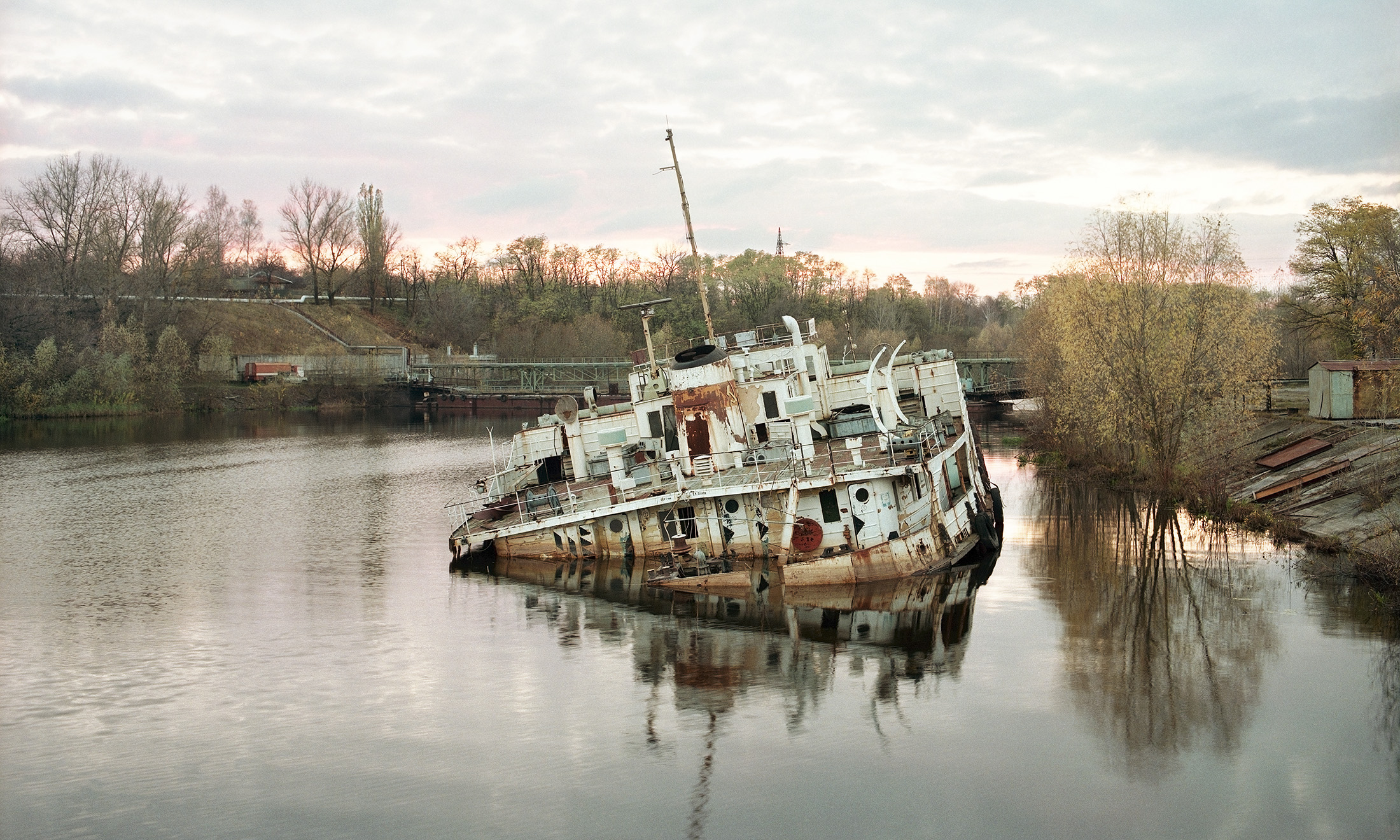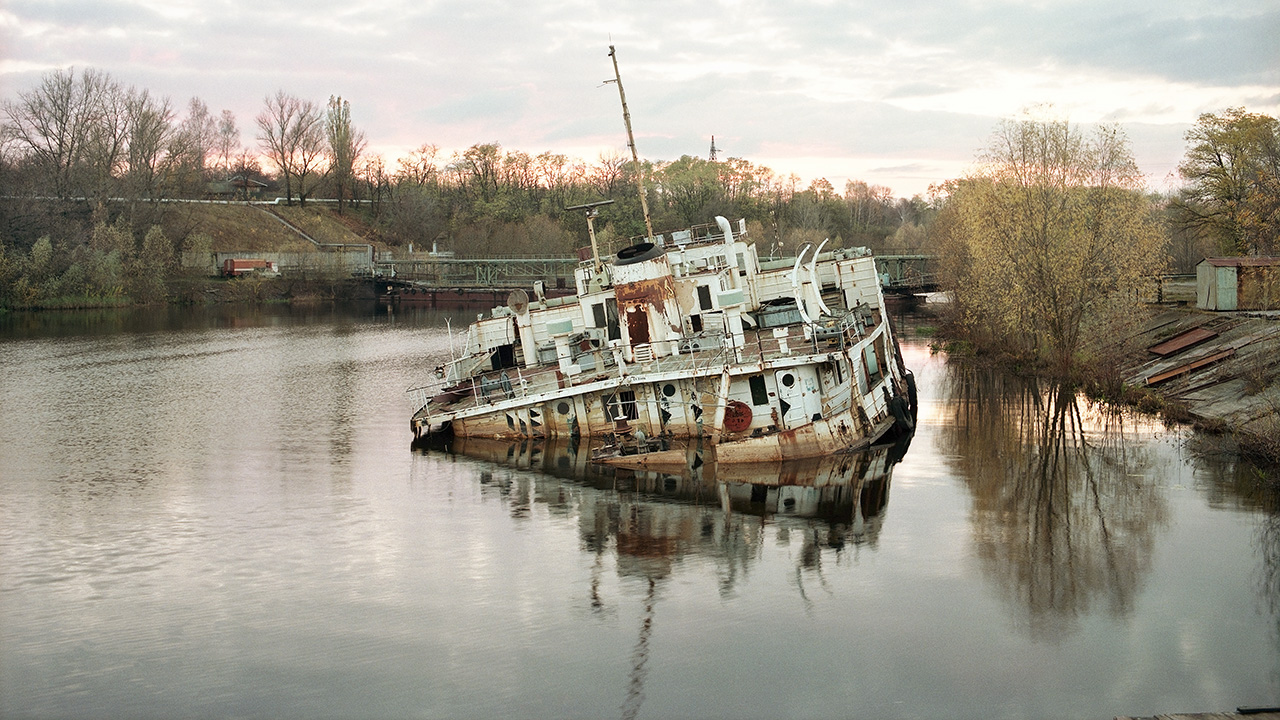- YouTube
- TikTok
Varner Vitality Lecture: "Revisiting a Journey Through a Doomed Land"

Photo courtesy of David McMillan, "Sinking Boat on the Prypiat River", October 1998. A larger exhibit of his work is on display now at the Oakland University Art Gallery.

A few years after the 1986 Chernobyl nuclear disaster, best-selling author and journalist Alan Weisman traveled to the site with Russian, Ukrainian and American scientists. They were tasked with designing safe ways for people to remain in surrounding regions.
In this year’s Varner Vitality Lecture, Weisman will describe visiting the decaying reactor and the lush farms that comprised the Soviet Union’s most fertile land, until Chernobyl’s fallout left them lethally radioactive.
There, and in Kiev cancer wards that will continue to receive victims for decades, he learned not only that the world can’t afford another Chernobyl, but also that we couldn’t afford the first one, either.
The Varner Vitality Lecture Series is named in honor of Oakland’s first chancellor, Durward “Woody” Varner. This series aims to energize and sustain the highest academic and scholarly aspirations of the university community.
This Lecture is sponsored by the Division of Academic Affairs.
WHEN
Thursday, March 14, 2019
Doors open at 6 p.m. – Lecture at 7 p.m.
Book signing following the lecture
WHERE
Oakland University Founders Ballrooms A and B
INFO
This is a free event and no tickets are required to attend.
For more information, visit the 2019 Varner Vitality webpage or to
request special assistance, contact: (248) 370-2190.
RELATED EVENTS
Chernobyl Then and Now: A Global Perspective Symposium
Friday, March 15, 2019
Morning Session: Meadow Brook Hall Ballroom
Seating limited to first 100 registrants Click here to register
Afternoon Session: Oakland Center, Founders Ballrooms Click here for more details
Visit the Oakland University Art Gallery to learn more:
See more David McMillan photos from Chernobyl at the Oakland University Art Gallery. The current exhibit is related to this year's Varner Vitality Lecture. It is called McMillan's Chernobyl: An Imitation of the Way the World Would End. It runs through March 31, 2019 and is curated by Oakland University professor of Art History Claude Baillargeon.



 February 20, 2019
February 20, 2019